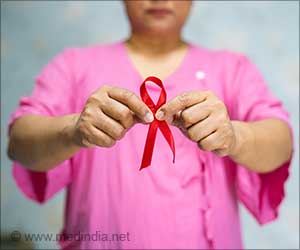The cancer research study that may be the ‘last best chance’ to do large-scale population research in the United States to discover the genetic and environmental factors that cause and prevent cancer.
The American Cancer Society is launching a major new cancer research study that may be the ‘last best chance’ to do large-scale population research in the United States to discover the genetic and environmental factors that cause and prevent cancer.
The Cancer Prevention Study 3 (CPS-3) aims to enroll a geographically and ethnically diverse group of half a million adults across the United States to help pave the way for the next generation of American Cancer Society research and further advance the understanding of the lifestyle, environmental, and genetic factors that cause or prevent cancer. It is the latest in a series of important large-scale American Cancer Society studies stretching back to the 1950’s that have contributed significantly to the understanding of how tobacco, obesity, diet, physical activity, hormone use, air pollution, and other factors affect the risk of cancer and other diseases.“There are no U.S. studies on the horizon positioned to take advantage of rapidly developing new knowledge and technologies over the coming decades, except CPS-3,” said Eugenia E. Calle, PhD, managing director of analytic epidemiology at the American Cancer Society, who is leading the study. “This type of study involves hundreds of thousands of people, with diverse backgrounds, followed for many years, with collection of biological specimens and assessments of dietary, lifestyle and environmental exposures. It also requires active follow-up to discover if and when study participants develop cancer.”
Large studies of up to one million participants are being conducted in Europe, the United Kingdom, China, Taiwan, and even Estonia. Unlike the U.S., in many other countries, health care is administered through a national system that gives each citizen a unique identification number linking health care data and all visits to government clinics. In addition, electronic registries of disease can often be linked to study members. “Another important factor is the fact that people in other countries are often willing to be enrolled in a study, historically a serious challenge in the U.S.,” said Dr. Calle.
Enrollment in CPS-3 will take place at 64 of the 4,800 Relay For Life® events taking place across the U.S. in 2007, and continue at select Relay events through 2011 (a pilot program enrolled participants at a handful of Relay events in 2006). Relay For Life is a fun-filled overnight event designed to celebrate survivorship and raise money for research and programs of the American Cancer Society. During the event, teams of people gather at schools, fairgrounds, or parks and take turns walking or running laps. Each team tries to keep at least one team member on the track at all times.
CPS-3 will enroll men and women between the ages of 30 and 65 who have never been diagnosed with cancer (important in studies that focus on the causes of cancer), and who are willing to make a long-term commitment to the study. Enrollees spend 20 to 30 minutes at a Relay For Life event, where after consenting to participate they complete a brief study questionnaire, get a simple waist measurement, and provide a small blood sample (similar to a doctor’s visit).
For the next 20 or more years, Society researchers will track CPS-3 participants through questionnaires mailed every few years, identifying and studying factors associated with cancer occurrence or prevention in the study cohort.
Advertisement
“It is not an exaggeration to say the American Cancer Society is the only organization likely to be able to successfully recruit and retain such a large-scale population for cancer research,” said Dr. Calle. “We have an excellent record dating back to the 1950’s of conducting these types of studies; we can bring together a world-class research department with a unique community-based volunteer structure like Relay For Life; we can reach diverse populations nationwide who have a shared commitment to cancer research and to eliminating this disease; and because we are a non-profit organization with the ability to partner with volunteers, we can conduct the study for much less than would be possible for the government or a private corporation.”
Source - American Cancer Society
LIN/V









